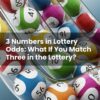When watching a boxing match or placing a bet, you might have seen the term “DQ”. If you’re unfamiliar with it, you may not be sure what it refers to or how it could impact your bet.
Understanding key terms like DQ could potentially help when interpreting match results. Being aware of how matches are settled can also help when reading betting markets.
In this guide, you’ll find out what DQ stands for in boxing and how it may influence the result of your bet. Read on to learn more.
What Does DQ Mean In Boxing?
“DQ” refers to disqualification. This occurs when a boxer is removed from the contest by the referee for breaching the rules. These rules are set by the governing boxing authority and agreed before the match begins.
A disqualification can happen if a fighter acts in a way that is unsafe, unfair, or clearly against the rules. The referee may issue warnings or deduct points before reaching this outcome. In more serious cases, a disqualification can take place without prior warning.
The opponent of the disqualified boxer is then declared the winner of the match.
What Counts As a Disqualification in a Boxing Match?
There are several actions that may lead to a disqualification. These include repeated intentional low blows, headbutting, biting, or striking after being told to stop. Use of banned substances also falls under conduct that may result in a DQ.
A referee may give a warning or deduct points first, depending on the nature of the incident. If the behaviour continues or is considered serious from the outset, the contest may be ended early.
Other grounds include ignoring the referee’s instructions, failure to engage in the contest, or interference by someone from a boxer’s corner. Boxing organisations may apply slightly different rules, so it could be helpful to be aware of the rules specific to the match.
How DQ Wins Are Settled at the Bookies
If a boxing match ends in a disqualification, bookmakers settle bets based on the official result. The fighter named the winner following a DQ is treated as the winner for most standard betting markets.
A straight win bet is generally paid out based on who is officially declared the winner, regardless of how that result came about. This includes disqualification results unless the terms of the market say otherwise.
For “method of victory” bets, disqualifications are usually treated as a separate outcome. They are not grouped with knockouts, technical knockouts, or points decisions. It might be worth checking the specific terms of the market you’re betting on, as these may vary between operators.
Does a DQ Count the Same as a KO or TKO?
A disqualification is not considered the same as a knockout (KO) or a technical knockout (TKO). Most UK bookmakers list disqualifications as a separate outcome in their “method of victory” markets.
If you place a bet on KO or TKO, and the fight ends with a disqualification, that bet would not be settled as a winner. Only bets that include disqualification as a valid outcome, or that are placed on the overall winner, would be settled as a win in this case.
Reviewing the market rules for the specific bet you’re placing could help you understand how different results are treated.
Common Reasons Boxers Get Disqualified
Disqualifications are usually issued for significant rule breaches. These may include:
- Multiple low blows after being warned
- Deliberate headbutting
- Punching after the referee has called a stop
- Biting, spitting, or other intentional fouls
- Failing to follow the referee’s instructions
- Involvement from trainers or team members during the match
Different boxing bodies may define fouls slightly differently. The examples above are commonly seen across UK professional and amateur boxing events.
Are DQ Bets Void or Paid Out?
If a bout ends due to a disqualification, the way your bet is settled depends on your chosen market and the bookmaker’s rules.
For win-only bets, the fighter awarded the win after a DQ is typically settled as the winner. If you placed a bet on a specific result like KO, TKO, or decision, and the bout ends in a DQ, your bet may not be settled as a win unless it explicitly covers that result.
Bets tend to be voided only in cases where the match is cancelled, declared a no-contest, or where one of the listed fighters is replaced before the event begins. For anything else, settlement usually follows the outcome officially recognised by the relevant boxing body.
Players should always remember to gamble responsibly and within their means- never wager more than you can afford to lose.







